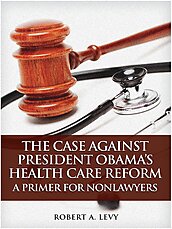Reinforced by decades of Court decisions that have gutted the Framers’ original conception of limited government, the Obama administration has embraced an unprecedented expansion of centralized control. This paper addresses the Patient Protection and Affordable Care Act, which includes a mandate that individuals either purchase a government‐prescribed health insurance policy or pay a penalty.
The Department of Health and Human Services has asserted three constitutional provisions as sources of authority for the mandate — the Taxing Power, the Commerce Clause, and the Necessary and Proper Clause. Each of those purported sources is deficient.
First, the penalty for not buying health insurance is not a tax. Even if the penalty were a tax, it would fail the constitutional requirements for income, excise, or direct taxes. Second, the power to regulate interstate commerce extends only to economic activities; it does not permit Congress to compel such activities in order to regulate them. Third, the mandate is not necessary; indeed, it is merely a means to circumvent problems that would not exist if not for PPACA itself. Nor is the mandate proper; it cannot be reconciled with the Framers’ original design for a limited federal government of enumerated powers.
An essential aspect of liberty is the freedom not to participate. PPACA’s directive that Americans buy an unwanted product from a private company debases individual liberty. And it’s unconstitutional.



